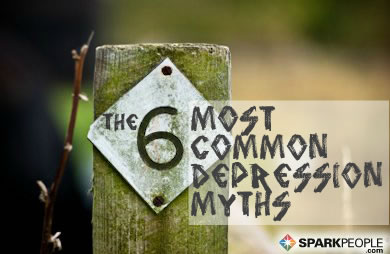|
"I'm fat because of Oreo cookies!" screamed the woman as she entered the weight-loss class I was coaching last week. In hand, she waved the press release from Connecticut College, which blared the warning, "Oreos are just as addictive as drugs!" "I am addicted to certain foods, just like those rats were addicted to Oreo cookies," she continued on. "It's supposed to be worse than being addicted to cocaine. How am I ever going to be successful with my weight loss?" While I had seen the study hit several of my RSS feeds earlier in the day, I really had not given it much attention. Other research has already shown that sugar-filled, fat-laden foods trigger the area of the brain that brings about pleasurable feelings. This pleasure center of the brain is also stimulated by drugs such as cocaine, morphine and alcohol. In fact, studies using an MRI (magnetic resonance imaging) machine have shown the activation of this pleasure center when certain foods are consumed. To me, this popular news story was touting the same message as published in the New York Times article earlier this year, "The Extraordinary Science of Addictive Junk Food." But when you combine the words "Oreo," "addiction" and "drugs" in a headline, you are bound to grab the attention of the reader, and this study did just that. In the Connecticut study, rats were placed in a maze that had two routes to different treats: sugary Oreo cookies or bland rice cakes. After the rats became familiar with the maze, you can probably guess which route they preferred---the path to the Oreos. The treats at the end of the two routes where then changed to a shot of saline (salt water) or a shot of cocaine or morphine. I imagine you can guess which injection the rats went for. According to the researchers, the rats in the experiment spent as much time hanging around the Oreo zone in the food test as they did the cocaine zone in the drug test. This led the researchers to assume there was a similar level of addiction. But that isn't exactly a correct assumption. To show the degree of addiction one would need to know how hard the rat is willing to work for the reward, such as how many times a rat would be willing to push a lever to get the reward. Honestly, this study only supports previous studies that have shown that sugary and fatty foods like Oreos produce pleasure or are more enticing than non-sugary, non-fatty foods. This particular study doesn't really prove that Oreos are "addictive," as eye-catching headlines would like you to believe. Whether any food can truly be "addictive" is still unproven. Certain foods and certain drugs do seem to share parallels in brain response. There have been studies where rats were fed a "junk-filled" diet and then put on a healthy diet. The brain changes were similar to those seen in drug addicts when trying to kick the habit. And just as an addict develops tolerance and needs more to feel satisfied, so do overeaters who binge. As a Registered Dietitian, I keep wondering what the best takeaway message from this study (and its aftermath) really is. How can we maintain control in an environment where these pleasure-stimulating foods are available with such ease (and excess)? How can we use this information to help prevent our children from becoming overweight? How does this help with our weight loss (or weight maintenance) efforts? I came up with these six strategies, and ask for you to share your success-building ideas as well.
What do you think? Are Oreos (or any other foods) as "addictive" as drugs? |
More From SparkPeople
|















